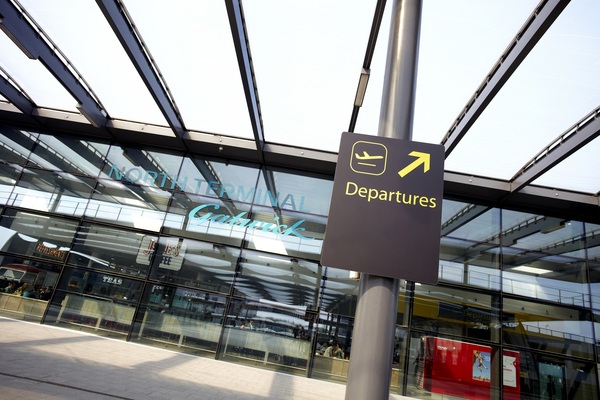Gatwick Airport has announced an increase in its passenger drop-off charge from £5 to £6.
The decision, effective from today, has been met with significant backlash on social media, with many labelling the move as ‘shameful’ and a ‘rip off’.
Gatwick Airport has communicated that the hike in drop-off charges is purportedly aimed at reducing congestion and promoting the use of sustainable transport options.
Airport authorities argue that the additional revenue will be reinvested in enhancing public transport links to the airport, thereby encouraging both passengers and staff to opt for these greener travel alternatives.
The announcement was initially made on X, formerly known as Twitter, and quickly sparked a flurry of negative responses from users.
Many online critics questioned the effectiveness of the increased fee in actually reducing congestion, especially given the limited availability of early morning and late evening train services.
Despite the rise in direct drop-off charges, Gatwick Airport provides an alternate solution through its long stay car parks, where passengers can be dropped off without incurring the fee.
Shuttle buses, running every 12 minutes, transport passengers from these car parks to the terminals, offering a cost-effective option for drivers wishing to avoid the forecourt fees.
The original drop-off charge of £5 was introduced in March 2021 with similar goals of managing traffic flow and enhancing airport accessibility.
Critics have voiced concerns that the fee increase may not effectively address congestion issues, as intended by the airport.
Some argue that the policy disproportionately affects those without access to frequent public transport, compelling more people to rely on car travel when other options are not available.
Gatwick Airport claims that the increased charges will fund improvements in sustainable infrastructure, aligning with broader environmental goals.
However, there is skepticism among the public regarding whether these funds will indeed facilitate significant environmental initiatives.
The debate also touches on the economic burden placed on travellers, particularly those on tight budgets, who may find the additional costs challenging.
The introduction of the drop-off charge in 2021 was part of a wider strategy by Gatwick to manage traffic and minimise environmental impact.
Since then, the airport has faced continuous scrutiny over its traffic management policies, with this latest charge increase reigniting previous criticisms over feasibility and fairness.
Looking ahead, Gatwick Airport remains committed to its strategy of encouraging public transport use through financial disincentives for car drop-offs.
The success of this approach largely depends on the development of robust public transport networks, which are crucial in offering passengers a viable alternative to car travel.
The decision by Gatwick to raise its passenger drop-off charge has elicited diverse reactions, highlighting a complex issue balancing economic, environmental, and convenience factors.
As the airport navigates these challenges, the effectiveness of its strategy will significantly rely on improving public transport accessibility.

